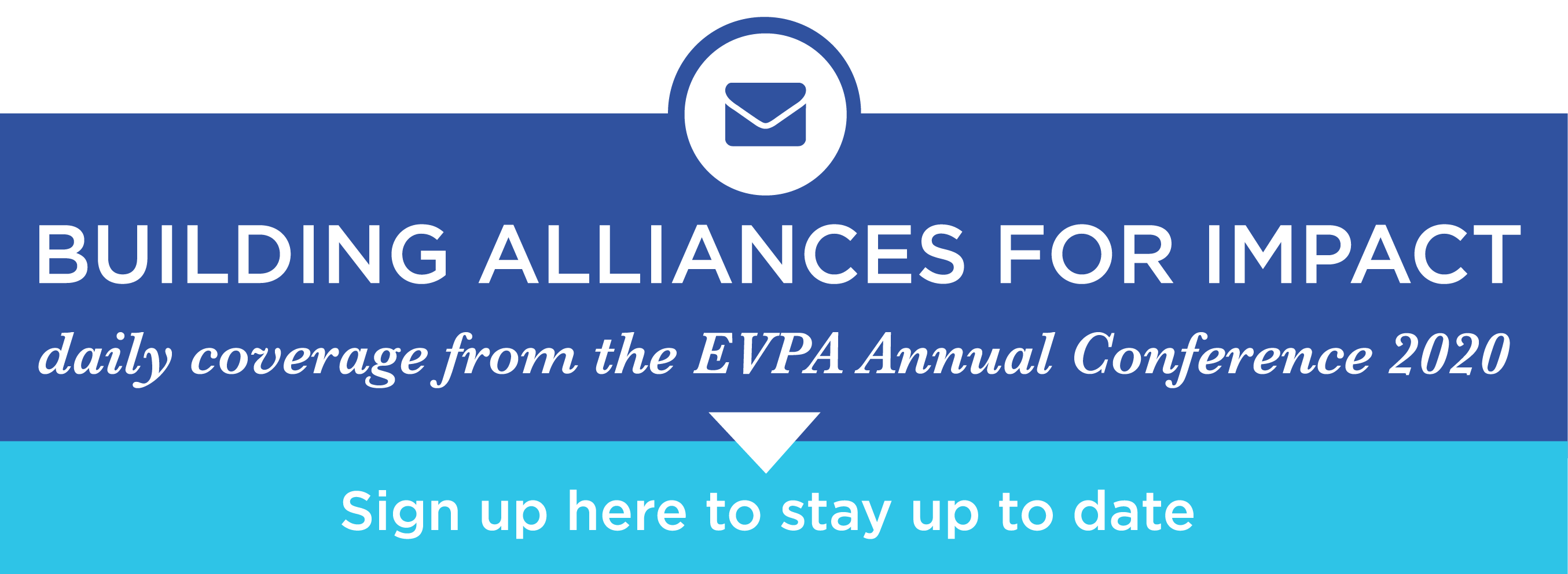Crucial months ahead for future of EU social enterprise funding
European funding for the social economy faces uncertainty over the coming months as the complex process of agreeing the EU’s 2021-2027 budget continues.
Such negotiations were “never simple”, said Ann Branch, head of unit at the European Commission’s directorate for Employment, Social Affairs and Inclusion, who was speaking at the EVPA conference earlier today. This time, it is especially delicate: negotiations start several years before the new financial period, and have been thrown off course this year by the financial implications of Covid-19.
Asked how much was at stake for social enterprise support, Andrea Leruste, a deputy head of unit at the European Commission’s DG Employment, said this was “not a very controversial” area, at least for her own area of the European Social Fund, which is set to see more focus on social innovation in its next phase.
But there may be more at stake in other areas of programming, including those in which management is shared between EU bodies and national ones. “The [EU] member states are deciding now what they’re doing now with this huge budget. So if member states don't think that social enterprise is a priority and make programmes that are not taking it into account then it will be like this for the next seven years,” Leruste said. “It’s not that nothing can be changed, but… you [would] have to take something away from someone else who expects the budget. So it’s more difficult.”
Leveraging new finance
 The Commission itself was “committed to viewing this crisis as an opportunity to shape a more sustainable and a better future”, said Branch (pictured), adding that existing major policy priorities include opportunities for social economy enterprises. In January 2020, for instance, the Commission adopted the ‘Strong Social Europe for Just Transitions’ initiative, which among other things recognises the role that social enterprises play in a green and inclusive transition – acting as “pioneers in creating local green deals involving citizens, enterprises and public authorities.” Social economy enterprises also “make a key contribution” to the targets within the European Pillar of Social Rights, by ensuring fair access to labour markets or enabling citizens to participate in society.
The Commission itself was “committed to viewing this crisis as an opportunity to shape a more sustainable and a better future”, said Branch (pictured), adding that existing major policy priorities include opportunities for social economy enterprises. In January 2020, for instance, the Commission adopted the ‘Strong Social Europe for Just Transitions’ initiative, which among other things recognises the role that social enterprises play in a green and inclusive transition – acting as “pioneers in creating local green deals involving citizens, enterprises and public authorities.” Social economy enterprises also “make a key contribution” to the targets within the European Pillar of Social Rights, by ensuring fair access to labour markets or enabling citizens to participate in society.
DG Employment is creating a new action plan for the social economy, to enter into force next year. Branch did not share further details but said it had become clear following stakeholder discussions “that access to finance will continue to be an important topic”.
The European Commission has introduced a number of new instruments in recent years to catalyse social finance including operating grants to support market growth and guarantee instruments, including the EaSI Guarantee Instrument through which the European Investment Fund offers guarantees and counter-guarantees to financial intermediaries, thereby providing a partial credit risk protection for newly-originated loans to micro-entrepreneurs or social enterprises. Every €1 spent through the EaSI Guarantee generated €11 of financing for micro-enterprises and social enterprises, said Branch; since its launch five years ago, it had led to the signing of 130 guarantee deals with intermediaries in 31 countries, and these deals are expected to mobilise more than €1bn in financing for social enterprises (€3bn total).
The benefits went beyond financial, tangible ones, Branch said: faster spreading of expertise and faster professionalisation of market players through engagement with the EIF. “And hopefully it also has a signalling effect at national level, sending a message to national policy makers and funders that these are areas worthy of investment.”
The social finance landscape had already evolved considerably and a “great deal” had been achieved, but it would be a “long-term endeavour”, Branch said. “We intend to use the next programming to continue what we started.”
Thanks for reading our stories. As an entrepreneur or investor yourself, you'll know that producing quality work doesn't come free. We rely on our subscribers to sustain our journalism – so if you think it's worth having an independent, specialist media platform that covers social enterprise stories, please consider subscribing. You'll also be buying social: Pioneers Post is a social enterprise itself, reinvesting all our profits into helping you do good business, better.




